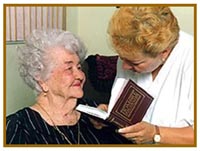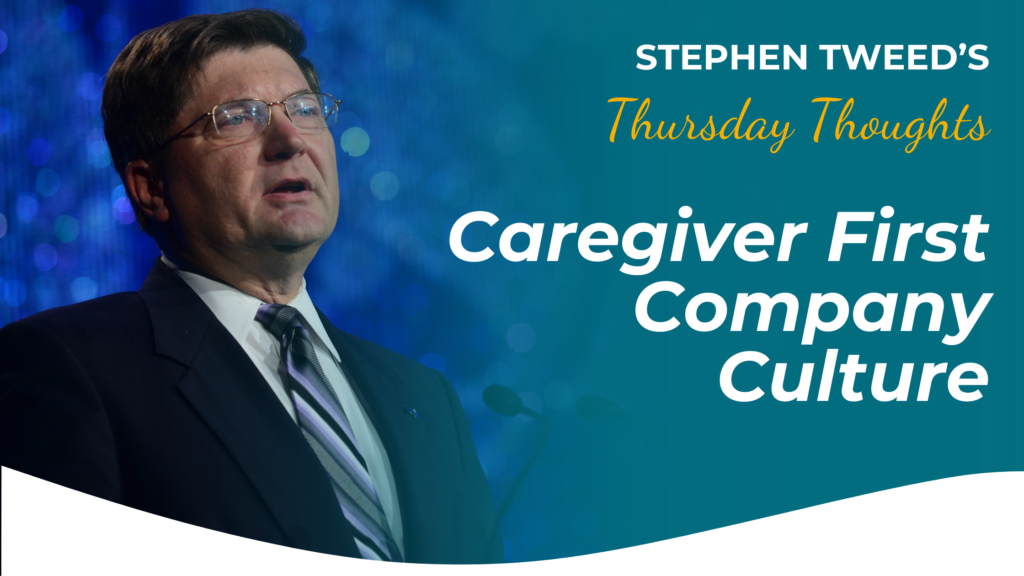by Stephen Tweed
When in my car, I have my radio tuned to one of two local radio stations. Recently, I’ve been hearing a regular group of commercials for a local car repair place called St. Mathews Imports. They specialize in fixing foreign cars. Actually, they’ll fix any car you bring to them, but they focus on imports.
One commercial starts out, (female voice) “I drive a 2004 Mercedes Benz, and I love my car. I had a problem at the local dealer, so I took my car to St. Mathews Imports. They took such good care of my car I’ve been going back there ever since.”
What makes your home care company different from your competitors? And what is your marketing message that attracts new clients?
In the last issue of Private Duty Today, we wrote about the Seven Sources of Competitive Advantage. In this issue, we want to focus on one source; Specialized Program Packaging and Promotion. You can differentiate your home care business from your competitors by offering care programs that are focused on the specific needs of a group of clients. The most common approach is to offer care programs focused on specific diseases.
I’ve been doing a lot of speaking for home care conferences and conventions around the country this year, and I’ve been doing a presenting called “Crafting Your Uniqueness: Seven Sources of Competitive Advantage in Private Duty Home Care.” In preparing for each of these presentations, I’ve been interviewing members of the audience to get very specific, concrete examples of private duty home care companies that are using each of the seven sources.
I’ve been meeting some company owners who have crafted unique approaches to packing and promoting specialized programs focused on specific diseases. Let’s take a look at some of them.
Dementia and Alzheimer’s
 One of the most common and troubling diseases for seniors is dementia, and it’s rapidly progressing form, Dementia of the Alzheimers Type (known to us as Alzheimers Disease). Not only is this disease troubling for the client, but it is emotionally and physically devastating to family caregivers. As you know, about 60% of the time, the inquiry call coming in to your office is coming from the oldest daughter of the client. She’s devastated and stressed to learn that Mom or Dad may have Alzheimers.
One of the most common and troubling diseases for seniors is dementia, and it’s rapidly progressing form, Dementia of the Alzheimers Type (known to us as Alzheimers Disease). Not only is this disease troubling for the client, but it is emotionally and physically devastating to family caregivers. As you know, about 60% of the time, the inquiry call coming in to your office is coming from the oldest daughter of the client. She’s devastated and stressed to learn that Mom or Dad may have Alzheimers.
You can create a special program to ease the stress of the oldest daughter by providing specialized training for your caregivers, offering memory care exercises that slows the growth of the disease, and providing respite services so the family caregivers can get away and reduce their stress.
Stroke
Another common condition of older people is stroke. Strokes come in various sizes, shapes, and intensity. The results of a Stroke can vary, but they very frequently leave a patient with issues around mobility, speech, eating, and mental alertness. You can create special programs to aide stroke victims, and provide peace of mind for family caregivers.
Multiple Chronic Conditions
One home care owner we met has built a very successful program focusing on multiple chronic conditions. He began with Parkinson’s disease. He met with physicians, outpatient rehab units, SNFs, and other health care providers who treat Parkinson’s patients. He described the special program he had created for Parkinson’s and immediately began getting referrals. Then someone asked if he could also care for an MS patient. Of course. How about a stroke patient? Why, yes!
Complex Medical Conditions
One company who know of is focused on serving clients who have complex medical conditions. They don’t provide skilled care, but they do provide personal care and Geriatric Care Management for these patients. Their referral sources are physicians, hospitals, home health agencies, and other providers of care to these patients. The non-medical home care company comes in to provide additional support, provide care management services, and to address the two most common causes of readmission to the hospital; medication compliance and physician follow up.
What’s your uniqueness? What makes your home care company different? There are over 17,000 companies providing non-medical home care in the US. At Leading Home Care, we get ten calls a week from individuals who want to start a home care company, and we don’t work with new start ups by individuals. The franchise companies are growing like crazy. It’s a tough marketplace out there.
How will you compete? What’s your story? Have you found a unique way of setting your company apart? Share your comments below.
Stay tuned for future issues of Private Duty Today as we write about the other six sources of competitive advantage in the marketplace.




